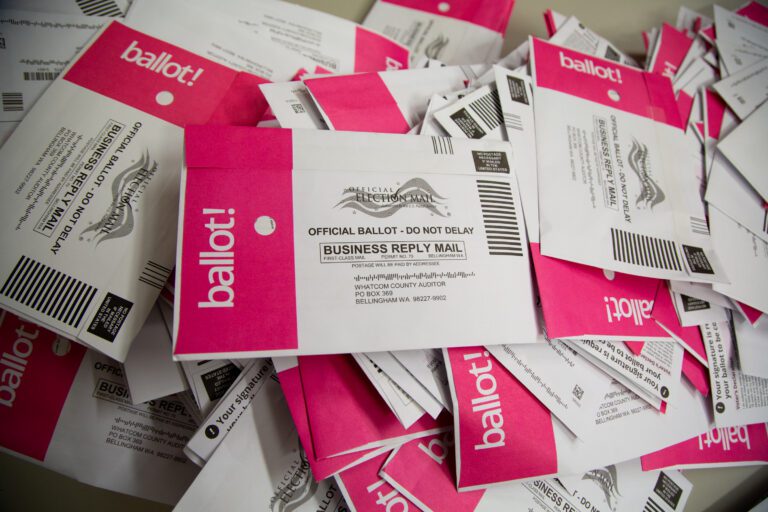Whatcom County Public Utility District No. 1 has dismissed the potential of providing public power, for now, after a commissioned study concluded it was not financially feasible.
Established in 1937, the PUD serves one electric service customer — the Phillips 66 Refinery in Ferndale.
For the rest of Whatcom, residential and commercial electricity is provided by Puget Sound Energy (PSE), which serves more than 90,000 households in the county. The cities of Sumas and Blaine have established municipal utility districts (MUD) where the cities provide public power to their residents.
An electric system expansion feasibility study, carried out by EES Consulting, analyzed the current state of electric distribution in the county and explored whether the PUD could offer electricity to the public like Sumas and Blaine do.
The study found PSE’s distribution system is in “marginally adequate condition,” and expanding the PUD’s service area would be too expensive to undertake.
“While there are significant non-financial benefits from taking over PSE’s assets in Whatcom County, especially around local control to achieve carbon intensity goals in electric supply and local reliability investments — the financial risks are significant,” the study stated.
Christine Grant, PUD commissioner for District 1, said she and the commission will continue to analyze the costs and benefits of expanding electric coverage, as many factors continue to change over time.
Grant said the commission will hold a public forum in April to answer questions and hear comments from county residents in reaction to the study.
Whatcom PUD sources 100% of its energy from the Bonneville Power Administration, which produces hydroelectricity from the Bonneville Dam on the Columbia River.
Bonneville’s electricity rates allow new public startup utilities to access power at a cheaper rate, which does not apply to Whatcom PUD.
EES’s study shows that Whatcom PUD would have to acquire PSE’s county assets, which are valued at nearly $500 million, and pay a high rate of electricity from Bonneville. The study determined this would cause too great of a financial burden on ratepayers in the future.
Andrew Reding, the chair of Whatcom Democrats, said there is a lot of public support for publicly provided power in Whatcom County, and specifically in the city of Bellingham.
“PSE generates a third of its electricity from strip-mined coal, and sends profits to mostly foreign shareholders,” Reding wrote in an email.
He believes that locally owned public power will create high-paying jobs, switch electricity to 100% renewable energy and lower long-term costs for people in the county.
With the main reason Whatcom PUD has decided not to pursue public power being the high associated costs, Reding suggests the formation of a MUD that would provide public power to ratepayers in the city of Bellingham.
With the creation of a MUD, public power would be less expensive and more feasible. And the utility would qualify for cheaper rates of electricity from Bonneville.
In addition to a lower cost, Bellingham’s electric infrastructure is densely situated in the city, making it easier to attend to maintenance issues. Phasing in this new system wouldn’t require updated technology either, as a billing system already exists for the city’s water and sewer systems.
Reding said that up until this point, the belief was Whatcom PUD could provide public electricity countywide. The first step in gaining public energy on a city level would be for the government to commission a feasibility study for a Bellingham MUD.
The PUD’s study takes into account that becoming the county’s electric provider is still within the utility’s mid- to long-term goals, especially if PSE customers continue to experience continuous high-rate increases, it stated.




